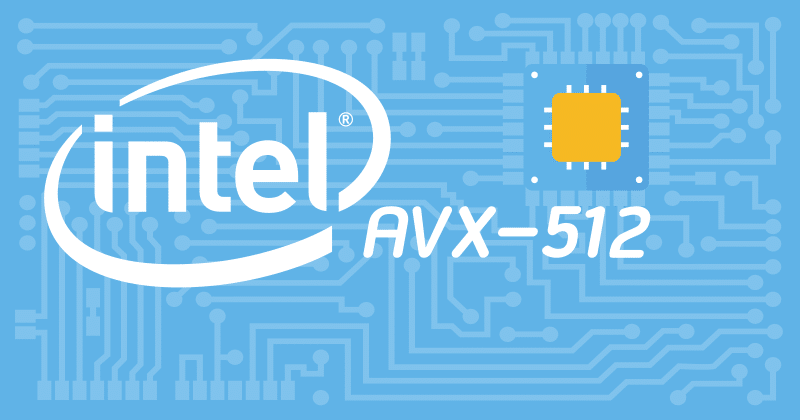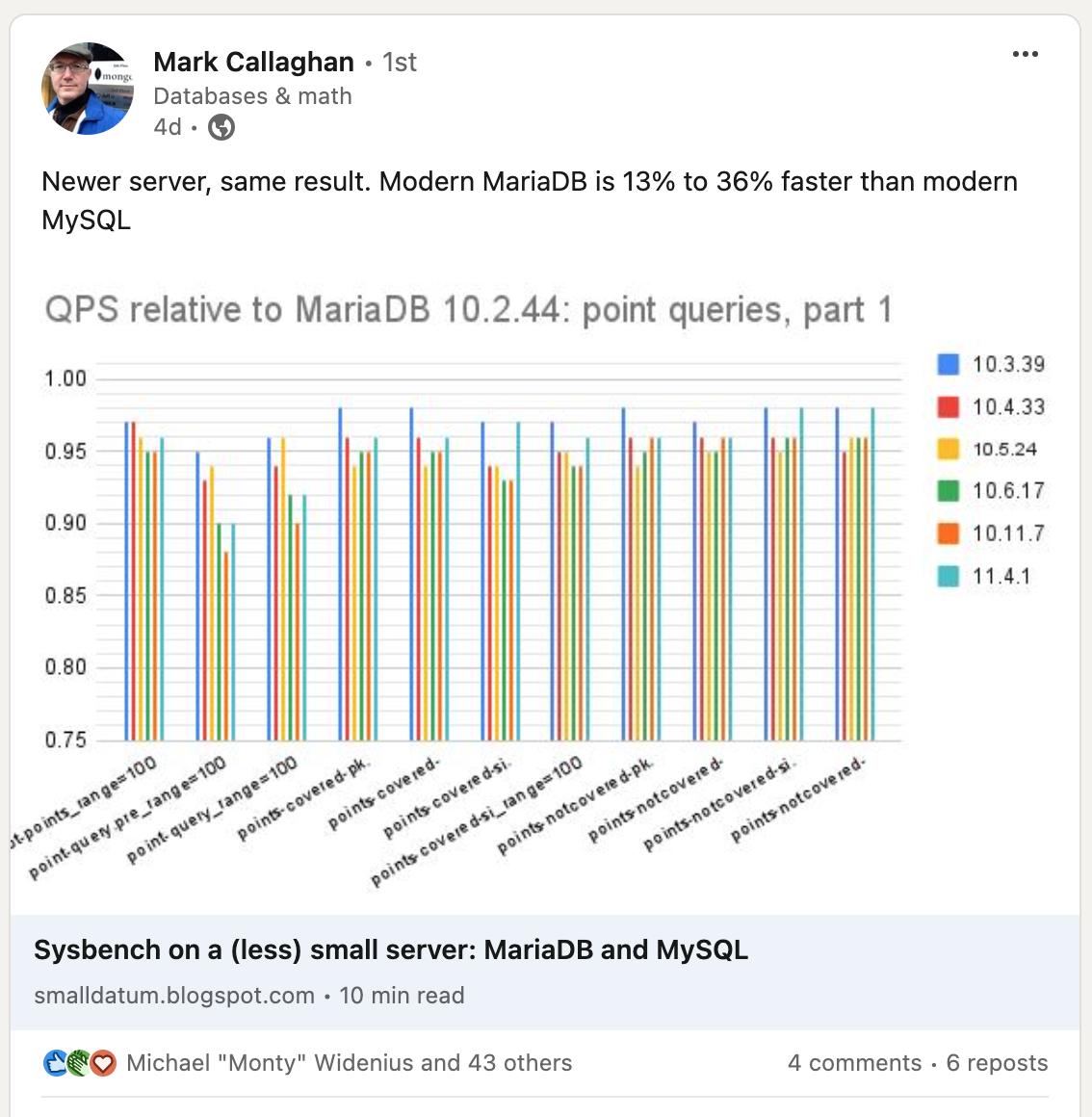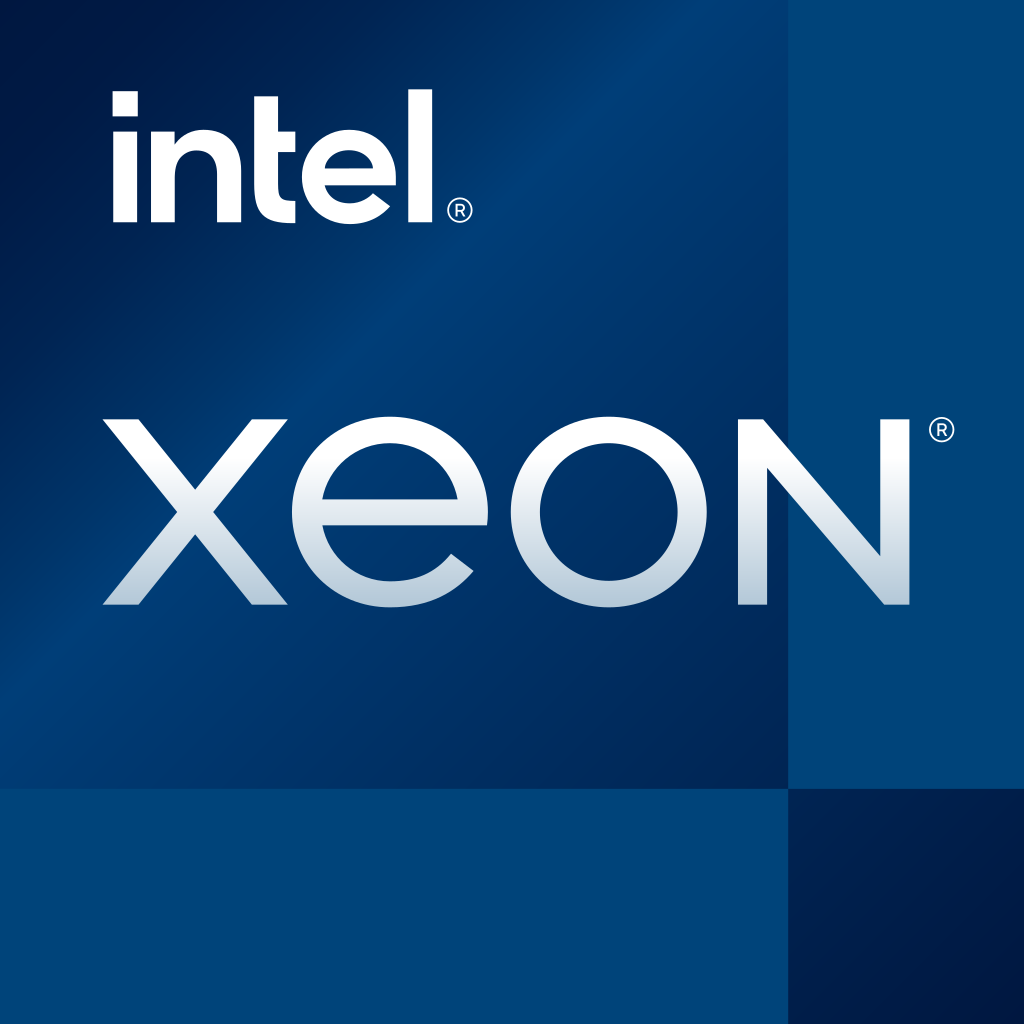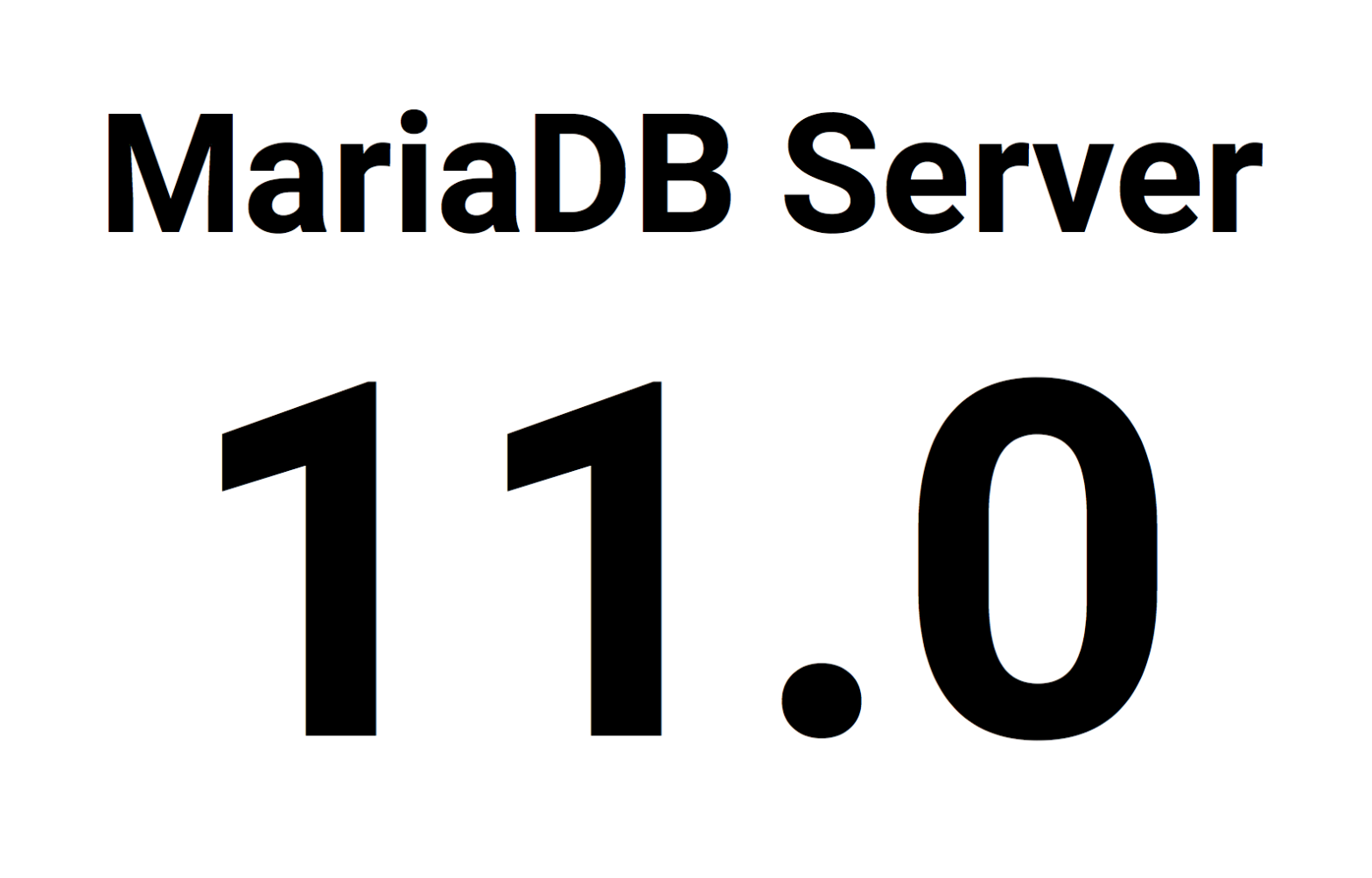Category Archives: Performance
Right after the recent MariaDB Meetup in London, I had the pleasure of sitting down with Steve Shaw – founder and CEO of HammerDB, former Principal Engineer at Intel, and board member of the MariaDB Foundation. Steve delivered the keynote talk at the event and has a unique perspective on performance, open source, and the intersection between commercial and community-driven database development.
This blog post captures our conversation – a dialogue between two people passionate about open source and database performance. We talk about Steve’s transition from Intel to HammerDB, his relationship with MariaDB Corporation, the nuances of performance testing, and what lies ahead for the HammerDB and MariaDB communities.
…
Continue reading “Open Source Performance, Benchmarks and MariaDB: A Conversation with Steve Shaw”
As you have probably seen in earlier posts, the preview version of MariaDB Vector is out and ready for you to play with. We have had input from several different places during the development of this feature. This, of course, includes hardware manufacturers such as Intel.
In the background, Intel have been prototyping using AVX512 instructions for dot product and bloom filter. Both of these are functions are part of vector searches. If you haven’t heard of these terms, let me try and break them down.
AVX-512 – 512-bit extensions to the Intel Advanced Vector Extension
The AVX512 instructions themselves are CPU specific instructions that are designed to run calculations on large vectors of numbers simultaneously.
…
Continue reading “Intel improving the performance of MariaDB Vector”
Is performance important for you, along with the latest features and long-term support? Go with MariaDB 11.4. But don’t take our word for it. We asked well known benchmarking expert Mark Callaghan to check out a number of MariaDB and MySQL releases, hit them hard with a tool of his choice, and share his findings.
MariaDB’s performance is stable over the years
The outcome: On the low concurrency load (high concurrency results are being prepared), MariaDB maintained stable performance over the last 10 years and 14 releases, while MySQL performance dropped almost by a third.
…
Continue reading “How MariaDB and MySQL performance changed over releases”
With Intel QuickAssist Technology, you can see a 5x performance in your MariaBackup compression, and lower CPU usage as well. Today I’m going to show you how.
What is Intel QuickAssist?
Nearly a decade ago, Intel released a technology called QuickAssist, which started out as a PCI-e card and then became integrated in many Xeon processes starting with the Skylake generation. QuickAssist Technology (often called QAT) is a special unit that the CPU can offload compression and encryption tasks onto.
I was lucky enough to have early access to this technology back when it was new.
…
Continue reading “Accelerating MariaBackup with Intel QuickAssist”
“The only workload that matters is my production workload” (for all values of “my”). So you can manage this responsibility, SCARY is a software tool which aims to take the uncertainty out of change; software, configuration and hardware changes. This is very early in development, but projects have to start somewhere.
SCARY takes a read view of the production database query execution, and does the equivalent query on a copy of the production database, that has differences. The query speed, query plan, data result (eventually) will be recorded along with what went on in production.
…
Let’s say you are a Cloud Service Provider, with many customers – each having many MariaDB Server users and databases. What if several such customers could share a single instance of MariaDB Server? That’s what we call the catalog feature, a feature that – if implemented – could potentially save lots of resources (and thus costs!) in a number of high-end use cases.
How the idea was born
At CloudFest 2023 near Frankfurt in March, we had in-depth meetings with a number of heavy MariaDB Server users – ones that one best would describe as Cloud Service Providers (CSPs).
…
Continue reading “Multi-tenancy through catalogs in MariaDB Server”
With MariaDB 10.0.0 having been released over ten years ago (12 Nov 2012), you may ask yourself when there will be MariaDB 11.0.0. If so, I can answer you: Today.
You can now download MariaDB Server 11.0 Alpha preview from our dedicated download page and check out the release notes.
Time has passed …
Of course, we have a better reason for going with a new first number in a release other than ten years having passed. Significant new features. Significant incompatibilities with earlier versions.
…
Continue reading “MariaDB 11.0 – new optimizer, new major version series”
Yes, it is a bit of a click-bait title, but in this case running one SQL command did improve a community user’s performance by that much. It could help you too.
The story
A community user posted in a couple of places that when migrating a large WordPress installation to MariaDB that they were seeing a certain query performing terribly. The query was taking 1.5 seconds to execute and it was clear from the explain plan that the optimizer was not making an ideal decision about the join order.
The query was generated by WordPress so it would not be easy to force an index, or rewrite the query.
…
Continue reading “This one trick can make MariaDB 30x faster!”






